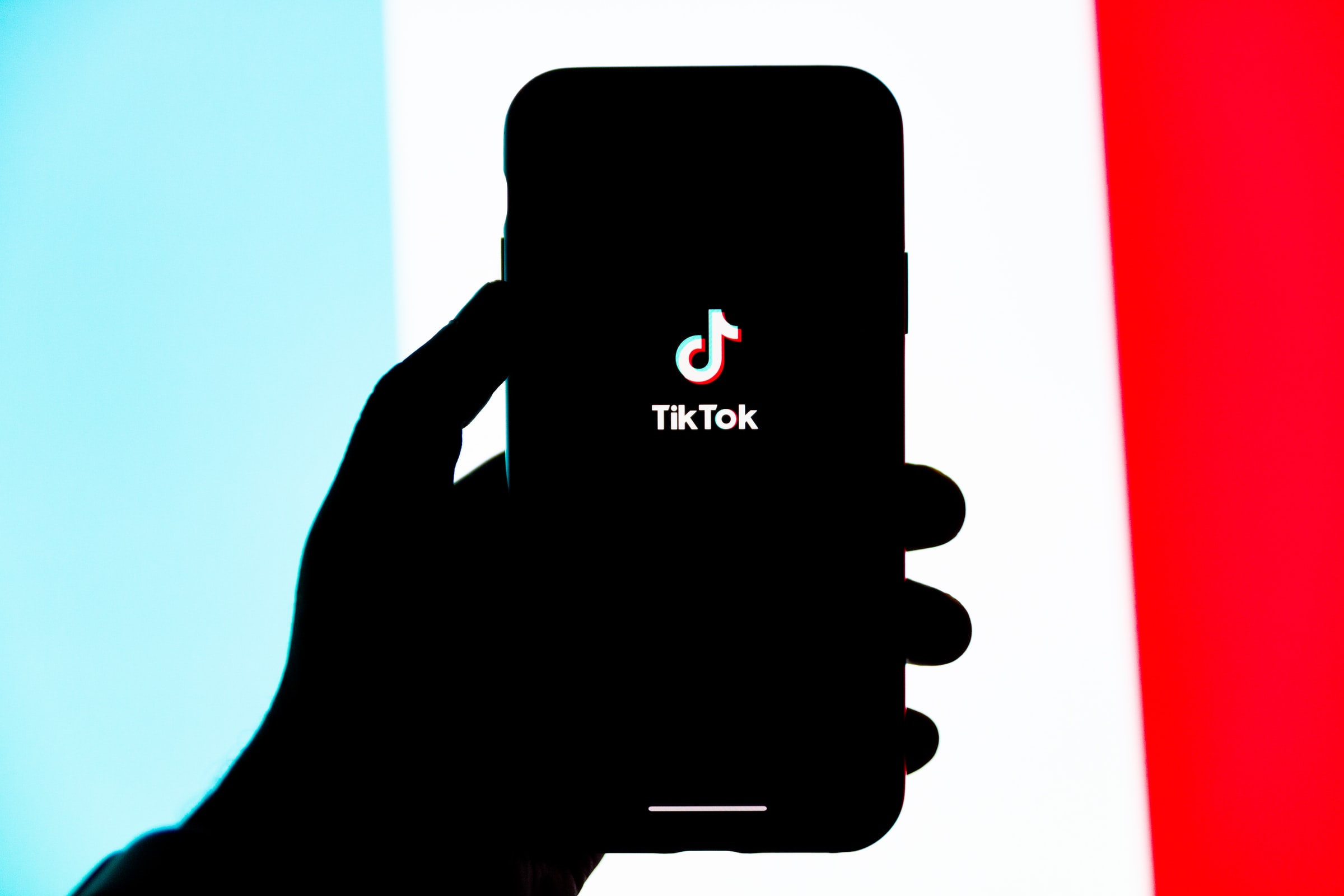Four Messages Your Freshmen Need To Hear This Year
By: Tim Elmore Brianna Rivera is an articulate high school student who wrapped her arms around a challenge that teens face today. Finding herself thrust back into society after quarantine, she said, “That’s a lot for me, after having been in isolation for 18 months. You want to get back into the swing of things, but there’s something kind of holding you
A Commitment for Educators: Being Fully Present in the Moment
By: Tim Elmore We all imagine a perfect life from time to time. What would it be like if we had no worries, all the pleasures life could offer, all the friends one could hope for, and all the resources we’d ever need? We can dream, can’t we? May I remind you of a true story? In 1993, Joan Ginther won the lottery while
The One Thing I Do at the Beginning of Each Year
By: Tim Elmore Last week, I posted a ritual I perform at the end of each year. A second ritual I do is a natural follow-up. It enables me to enter a new year on purpose. After I invest a morning reviewing the previous year, I spend the second half of the day previewing the new year. I think, write, and reflect
The One Thing I Do at the End of Each Year
By: Tim Elmore For 36 years now, I have performed a ritual at the end of December. It’s the way I wrap up each year and gain some perspective on my life. I take half of a day to get completely alone. Usually, I get away from the house and find a quiet place to reflect. During this time, I think, pray, and
One Secret to Take Full Advantage of Your Holiday Break
By: Tim Elmore Several years ago, in a remote area of a country in Africa, local villagers discovered that some young elephants wandered from the herd. They were lost for some time. When those pachyderms were returned to their families, they were no longer babies. They’d changed over time. Researchers, called Mahouts, made some fascinating observations as they watched these stray
How to Help Students Beat Stress and Welcome Pressure
By: Tim Elmore Jana Davidson teaches seventh-grade science and tenth-grade biology. Every day, she observes students entering her classroom feeling stressed out. Many of them feel overwhelmed. Anxiety has been normalized thanks to social media and a pandemic. When I asked Ms. Davidson how she helps her students manage their stress, she told me she assumes the best way is to take
Let’s Talk about TikTok
By: Andrew McPeak A few months ago, I downloaded TikTok. Within minutes, I understood what all the fuss was about. I was laughing. I was surprised. I was angered. I was awed. Not only did I experience a wide range of emotions, but I also noticed that each emotional experience was short, beckoning me to keep swiping to the next video. “After
Why Millennials and Generation Z Students Are Choosing Control Over Caution
By: Tim Elmore I don’t know if you’ve noticed, but teens and young adults today have been in a funk for the last several years. Mental health continues to be an issue in the aftermath of the COVID-19 pandemic. However, since 2017, I’ve been watching a trend that encourages me. This overwhelmed population of young people (middle school, high school, and college
The Inverse Relationship Between Gratitude and Entitlement
By: Tim Elmore I’ll never forget the day a university professor told me a student approached him after making a poor grade on an exam. The student reasoned that because his parents paid full tuition, he deserved an “A.” Wow. Sounds like a customer, vendor transaction, doesn’t it? His mom and dad were buying a good grade, rather than a chance
What We Learn About Generation Z From the Top Netflix Show: Squid Game
By: Tim Elmore I’m not talking about The Crown. Nor am I talking about Game of Thrones. I am not even talking about Bridgerton. There is a new show in town on Netflix. The series Squid Game has taken the Netflix platform by storm. Squid Game has attracted 111 million views since its release on Sept. 17, according to a Netflix tweet.
The Impact of Reality TV on Generation Z
Generation Z, the youngest population social scientists are studying today, was born about the same time as Reality TV. You might remember the precursor to popular reality television was a 1998 Jim Carrey movie called, “The Truman Show.” It was a film about an unsuspecting man living in an average U.S. town whose entire life was monitored by television viewers,
How Masks Can Deepen Social and Emotional Learning
By: Tim Elmore I don’t know about you, but I am seeing more and more face masks on the ground these days. Whether it’s in a parking lot or restroom or at a shopping mall, people seem to be sending the message: “I’m through with these masks!” Yet, with the surge of infections due to the Delta variant, many schools, restaurants, and
Advice to Teachers and Parents When Guiding Teens on Instagram
By: Tim Elmore Anyone who cares about young people should see the data just revealed on Instagram and its parent company Facebook. Millions of teenagers, mostly girls, have spiraled into symptoms of depression and despair after spending time on these platforms. The data seems to indicate the connection between depression and Instagram is not just a coincidence. One teen, Anastasia Vlasova,
Ever Heard of the Blackout Challenge? How Social Media Is Changing Peer Pressure and What to Do About It
By: Tim Elmore I remember feeling tangible peer pressure in high school. Friends pushed me to smoke cigarettes and marijuana, drink beer, and be sexually active. This was not uncommon in the 1970s. Culture was morphing from traditional to rebellious as baby boomers and Gen Xers pushed boundaries and listened to their peers over their parents. While I dabbled a bit in
Busting a Common Myth Preventing Students From Leading
Rich was one of the most consistent student leaders I witnessed while living in San Diego. But he almost never led anything; he came an inch from never, stepping up and showing his peers what he could do. He almost failed to jump a common hurdle that keeps millions of students from leading today. His hurdle? He wasn't a "natural." You see,
Practicing the Paradox of Confidence and Humility
By: Tim Elmore Bob Iger replaced Michael Eisner as the Chief Executive Officer of Walt Disney Enterprises in 2005. These two leaders are polar opposites and a picture of a leadership paradox. Over the years, Eisner grew increasingly isolated and overbearing, which ultimately led to a shareholder revolt and his own dismissal. His final years, many say, were marked by self-destructive
Leading When You’d Rather Be Leaving
By: Tim Elmore There is a new term describing the challenge many organizations face today. It’s called absentee leadership. A leader or manager may be physically present but psychologically and emotionally absent. Why? They’re just not up to the challenge. A 2015 survey of 1,000 working adults showed that eight of the top nine complaints about leaders concerned behaviors that resembled absentee leadership. Employees were
The Need for Paradoxical Leadership
By: Tim Elmore I had an epiphany a few years ago while sitting in the green room right before I spoke at a conference. There were sixteen CEOs in the room, and I decided to turn the moment into an instant focus group. I asked these men and women if they believed that leading a team today is harder than it
Struggling to Establish Both Relationships and Accountability with Your Students? Try Using a Social Contract.
By: Andrew McPeak Just a few weeks ago, I stood in front of almost a hundred teachers — the faculty of a mid-size high school in North Dakota. Together, we discussed methods for connecting with and leading students, and the changes that leadership in the 21st-century classroom requires. We talked about everything from student engagement, to student ownership, and even experiential
How to Lead Kids Who’ve Experienced Adult-Sized Trauma
You may remember the tragic story from last April. A sixth-grader found his dad's 9mm handgun, loaded it with a magazine of bullets, and walked onto his campus at Plymouth Middle School outside of Minneapolis. He positioned himself in a hallway, shot the gun toward the ceiling, and watched fellow students run and scream in terror. His goal was to
One Magical Idea to Increase Student Engagement This Fall
By: Tim Elmore Building off of an earlier patent by John Duff, General Mills’ created its first Betty Crocker instant cake mix in 1947. Since the Great Depression and World War 2 were over, people were spending money again. Folks at Betty Crocker assumed that because they made baking easier sales would take off. But they didn’t. Executives were baffled that
Four Lessons on Leading Young People From the Tokyo Olympics
By: Tim Elmore The postponed Olympics Games held in Tokyo are now history. As always, there were highs and lows for competing athletes, but I’d like to focus on some insights we gain as we watched this year’s young athletes perform. The major difference for me in these Olympic games was the topic of mental health. Among the biggest stories from Tokyo was
Navigating “Compassion Fatigue” as We Enter a New School Year
I met with fourteen C-suite-level leaders recently. They were from different industries, different age groups, different genders; but they all had something in common. When I asked them if leading people was more difficult today than it was when they first became leaders, each responded affirmatively. "Absolutely!" said one. "One hundred and ten percent!" replied another. The answer was a no-brainer. This sent
The Comeback School: How to Be Ready When Classes Begin Again
The news headlines were dramatic: Schools debate on whether to shut down or to stay open; students struggle with quarantine boundaries; children and teachers are expected to wear masks as infections continue to soar. Sound familiar? Did you know those headlines were from the Spanish Flu in 1918? Much like what happened last year, most U.S. schools closed during the 1918 influenza
Sharenting: Solving the Problem of Parents and Kids on Instagram
It all started when April, Christine's youngest daughter, was five years old. Christine knew April would be their family's last baby and wanted to document each milestone and comical moment of her childhood. By the time she was ten, April was avoiding photo ops; shying away from the camera. By 13, when she had a phone of her own, April
The Art of Drawing Commitment from Students
Two senior leaders of university clubs spoke to me in August about the challenges they faced with their organizations. Both were recruiting prospective members from the students on campus, but both were disappointed. They couldn't seem to keep committed members. The students either left because they had other options, or they just lost interest in the club. I believe the problem
Read Before You Lead: Why Every Thermostat Has a Thermometer
By: Tim Elmore In 1990, I began using a metaphor to teach students how they could earn the right to influence others. This metaphor has now become common language among educators: a thermometer and a thermostat. I found that while students are both simultaneously, they also tend to be more of one than the other depending on their environment: Thermometers simply
Helping Students Strike a Balance Between Inclusion and Diversity
By: Tim Elmore Did you hear how Columbia University handled their graduation ceremonies? No, I’m not referring to mask-wearing or social distancing. I’m talking about the administration’s decision to host six separate graduation ceremonies, based on the graduates’ income level, race, ethnicities, and gender preferences. My concern has nothing to do with the pandemic, as each ceremony was a virtual one.
How to Help Students Become Objective Rather than Obsessive
By: Tim Elmore If you met Kayla, you wouldn’t know she was distraught. She smiles a lot. She dresses sharp. She makes A's and B's in school, and she’s got quite a following on Instagram. When I met her, I assumed she was on top of the world. I would’ve never predicted she was panicking every day. Her mother asked if I
How One Group of Student Leaders Found a Way to Manage Mental Health at Their School
By: Tim Elmore I recently spoke at the 2021 Cobb County Student Leadership Academy awards event. Students were present, often with their parents and teachers, to learn about leadership and be recognized for what they’d achieved beyond academics this year. Pope High School was one school that was highlighted. Student leaders at Pope had recognized how much their classmates struggled with school during
Digital Citizenship: Having The Right Conversation With Students
By: Tim Elmore The Supreme Court seems close to issuing a ruling in the case of a student who was kicked off her high school cheerleading team due to an obscene Snapchat post. Brandi Levy, a high school sophomore posted a message where she vents, “F--- school, F--- softball, F--- cheer, F--- everything!” Obviously, she’s a teen who’s letting off steam
How SEL Can Accelerate Maturity in Students
By: Tim Elmore One decade ago, I began to hypothesize about a trait I observed in high school and college students. I continued to be baffled by how much they knew yet how little they’d experienced. I researched the reasons for this and came up with a term, which became the title of a book: artificial maturity. Artificial maturity may sound like
Three Steps To Practice Mindfulness During Testing Season And Teach It To Your Students
By: Nautrie Jones 100% Virtual. 100% In-Person Learning. Hybrid. Synchronous. Asynchronous. If you are in any field relating to education, it is likely that both you and your students are quite familiar with one or all of these terms. This past year has been a challenge for us all. Students have been pushed and pulled in many different ways. Teachers have been stretched and stressed, and,
The Case For Why A Broader Perspective Is A Crucial Skill Your Students Need
By: Tim Elmore Last week, a dear friend of mine swore to me that anyone who celebrates Easter is cursed. Three weeks ago, I met someone who believes the world is flat and anyone who thinks otherwise has been duped by the government. In January, I spoke to a group of people who feel the attack on the Capitol in Washington
Quaranteens: Three Ideas to Help Students Grow in the Pandemic
By: Tim Elmore It’s been over a year since students all over the world were sent home from school and instantly had to learn how to learn from home. Teachers tried to maintain academic standards as students transformed their bedrooms, dens, and kitchens into classrooms to try to meet those standards. Some call these middle school and high school students quaranteens. They’re now
The Importance of Sensitivity in Your Student’s Empathy Skills
By: Grace Hooley I vividly remember the first time a teacher told me I was being too sensitive. It was sixth grade in Mrs. Troy’s social studies classroom, and we were talking about the Trail of Tears and The Native American Removal Act. As she talked about how these native people groups were brutally removed from their land, the reality of our
The Importance of Laughter for Your Student’s Stress Management
By: Tim Elmore Whenever I meet with students, it seems something hilarious is bound to happen. It’s part of adolescence—to seek out the bizarre, to poke fun, and to laugh at ourselves. I’ve come to believe it’s part of dealing with stress. I’ve heard from middle school and high school educators recently who shared some of their amusing moments on Zoom
Why SEL Has to be More Than Just a Class
By: Andrew McPeak A few months back I had the pleasure of teaching three sessions at a district-wide conference for K-12 teachers. As a part of my presentation, I made a point to talk about why building Social and Emotional Learning (SEL) skills during the pandemic was one of the most important challenges we could take on as educators. After all,
Ten Terms That Define Generation Z Today
By: Tim Elmore Some are now calling Generation Z by a new name. They are known by many as Generation Covid, or Generation C. I have heard others call them, the Coronials. I released a book last fall called The Pandemic Population. They are the young people who will forever be marked as those who came of age during a pandemic.
Five Practices to Help Students Make Stress Work For Them
By: Tim Elmore Gretchen Goldman is a scientist, a mom, and the research director at a nonprofit in Washington. Her job involves conducting television interviews and briefing lawmakers. Now, however, she is doing this work from home, near her young children and a chaotic environment. On the screen, Gretchen looks poised and well dressed, but she admits that if her laptop
Seven Ideas to Employ if Remote or Hybrid Learning Doesn’t Go Away
By: Tim Elmore Although millions of teachers, students, and parents would say the abrupt transition to remote learning a year ago was problematic, many are now preparing for more of it going into the 2021-22 school year. According to journalist Benjamin Herold, “Many teachers hate it. Millions of parents find it exhausting. A growing body of evidence suggests it has contributed
Introducing a New Monthly Offering: Emotionally Intelligent Leadership with Tim Elmore
By: Tim Elmore At the dawn of 2021, I decided to do something new for you. You may have noticed that blogs over the past several months have started to focus primarily on social and emotional learning and life skills. Growing Leaders made the decision to focus on these topics because we believe that young people need to cultivate these inward skill
Three Helpful Secrets for Putting Empathy to Work
By: Tim Elmore One fascinating study on the subject of compassion was conducted at Princeton Seminary in 1973. Graduate students who studied theology were asked if they were entering the ministry because of innate reasons (i.e., they cared for people) or for circumstantial reasons (i.e., their father was a minister). After the survey, each respondent was told to offer a Bible
How To Help Your Virtual Students Stop “Fitting In” and Start “Belonging” in Your Classroom
By: Andrew McPeak You’ve probably had something like this happen in your classroom this year. You work hard to have fun with your students. You create interesting and fun assignments for them, and you think it’s going well. Then something happens. A student says something harsh like, “I hate this class,” or a parent contacts you to tell you that his
Four Ways to Expand Your Student’s Social Awareness
By: Tim Elmore Last fall, a group of high school freshmen sat in health class discussing personal hygiene. The subject was already deeply personal, but it became awkward when Erica failed to show social awareness. When Jacob was unable to hear a classmate’s comments, Erica reprimanded him, saying, “What are you, deaf? Pay attention!” Erica had no idea that Jacob was, indeed,
Five Ideas to Manage Your Kids’ Screen Time in a Pandemic
By: Tim Elmore This may not surprise you, but since the pandemic started, kids' screen time has doubled. Qustodio, a monitoring device that tracks screen time reports that kids' screen time has increased 100 percent since the COVID-19 outbreak started. One dad noted that his son played video games 40 hours in a single week. That’s a full-time job. Check out
Overcoming the Most Common Mistake Educators Make Leading Generation Z
By: Tim Elmore In 2010, Christopher Havens was sure he’d hit rock bottom. That year, he was sentenced to 25 years in prison for murder. Soon after, a fight earned Havens time in a solitary confinement cell at the Washington State Penitentiary in Walla Walla, Washington. When he arrived at the facility, he assumed that fitting in was his best chance
How to Teach Your Students To Be Responsible Decision Makers
By: Tim Elmore I remember it like it was yesterday. I met with three high school students following a major brawl after a Friday night football game. A group of students from each high school began trash-talking each other, and the clash got heated. Within moments, words were exchanged for fists. The fight required security guards, teachers, and parents to break
Ban Facebook or Build Leaders: How Education Can Bridge the Gap Between Social Media & Social-Emotional Learning
By: Tim Elmore I never thought I’d see this day. The government of the Solomon Islands, a nation of hundreds of individual islands in the South Pacific, is planning to ban the entire Facebook platform, ABC Australia reports. Yep — this is no joke. Facebook will be banned from an entire country. Why? you ask. Incivility. Bad behavior online. Cyber-bullying. Defamation of character.
What the GameStop Market Surge Teaches Us About Generation Z & Millennials
By: Tim Elmore For years, younger generations have been the brunt of jokes by older generations who felt they were immature, lazy slackers who moved back home after college. A Twitter hashtag called, #HowToConfuseAMillennial even went viral, as social media posts often do. Some samples are: Show them a phone book. #HowToConfuseAMillennial Turn off their autocorrect. #HowToConfuseAMillennial Hand them a job


















































